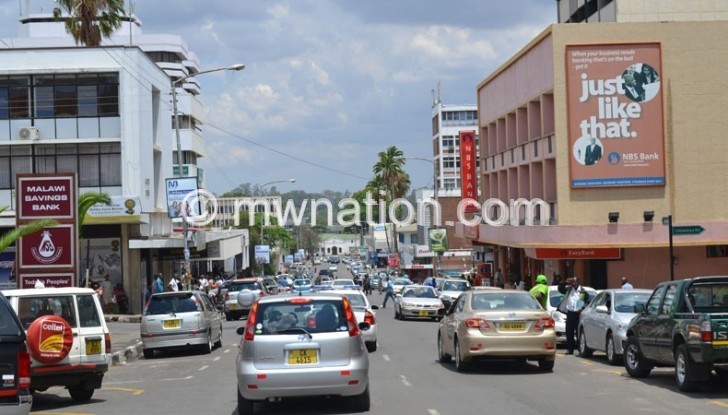Economic goals under threat
Economics Association of Malawi (Ecama) says Malawi’s chances of attaining the middle-income status could be thwarted if the low growth rates persist in the long-term.
Ecama president Lauryn Nyasulu points out that although other factors such as exchange rate, inflation have remained stable; the risks remain if the current economic environment continues.

“In view of the current economic challenges, the country needs to put in place policies and strategies that will ensure that the economy reaps the economic gains from the past years.
“All is not lost, with a stable macroeconomic environment and prudent public finance management the aspirations of becoming a middle income country by 2030 will become a reality,” she explained.
Treasury has since revised downwards the country’s gross domestic product (GDP) growth for 2019 from the 5.2 percent reported in August 2019 to five percent following a recent survey in February 2020.
The momentum that was experienced in 2019 was initially expected to continue in 2020 before the intensification of the Covid-19 pandemic, which led to yet another downward revision of growth in 2020 from the 5.5 percent estimated in February 2020 to 1.9 percent.
The real GDP growth projection for 2021 has also been revised downwards to 4.5 percent from 5.8 percent as reported during the February 2020 Business Interview Survey.
Meanwhile, World Bank estimates from its 2020-21 Country Classifications by Income Level indicate that Malawi’s gross national income (GNI) per capita has fallen over a 10-year period from $450 (K333 000) in 2010 to $380 (K281 200).
This makes Malawi a country with the lowest GNI per capita in the Southern Africa Development Community (Sadc) after Burundi, which has a GNI per capita of $280 (K207 200).
Analysts fear that this could worsen when the impacts of Covid-19 pandemic are brought into the picture.
For example, Betchani Tchereni, an associate professor of economics at The Polytechnic—a constituent college of the University of Malawi—explains that low levels of average incomes, implies that more people have gone down the poverty line.
He warns that the situation could worsen in the face of the Covid-19 pandemic which has forced most countries to lockdown in an effort to slow the spread of the coronavirus.
He said: “In the face of the pandemic and the political uncertainty created, we really should be concerned. It means our foundation is being eroded away making it more difficult to grow and improve.”
Since first appearing in China last December, the novel coronavirus has spread to at least 188 countries and regions. The US, Brazil, India and Russia are currently the countries hardest hit in the world.
The pandemic has killed nearly 584,000 people worldwide, with more than 13.55 million confirmed cases, according to figures compiled by US-based Johns Hopkins University. Some 7.55 million people recovered from the disease.n





